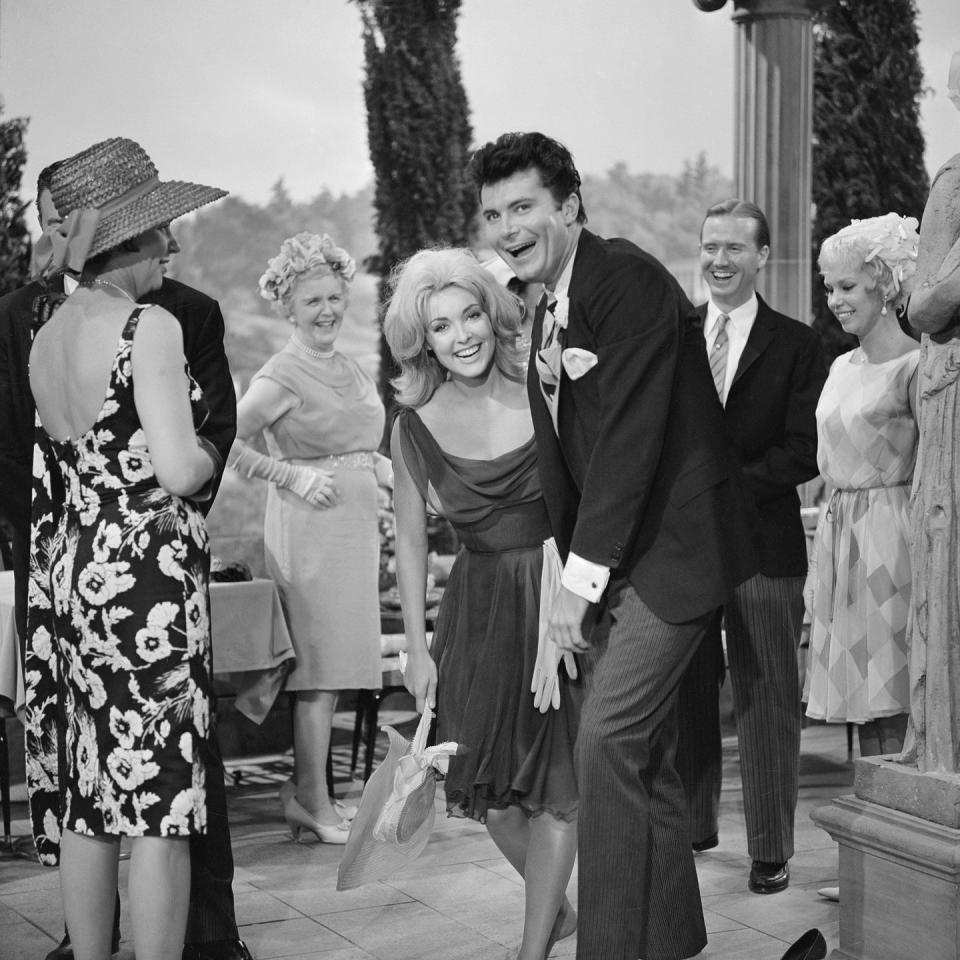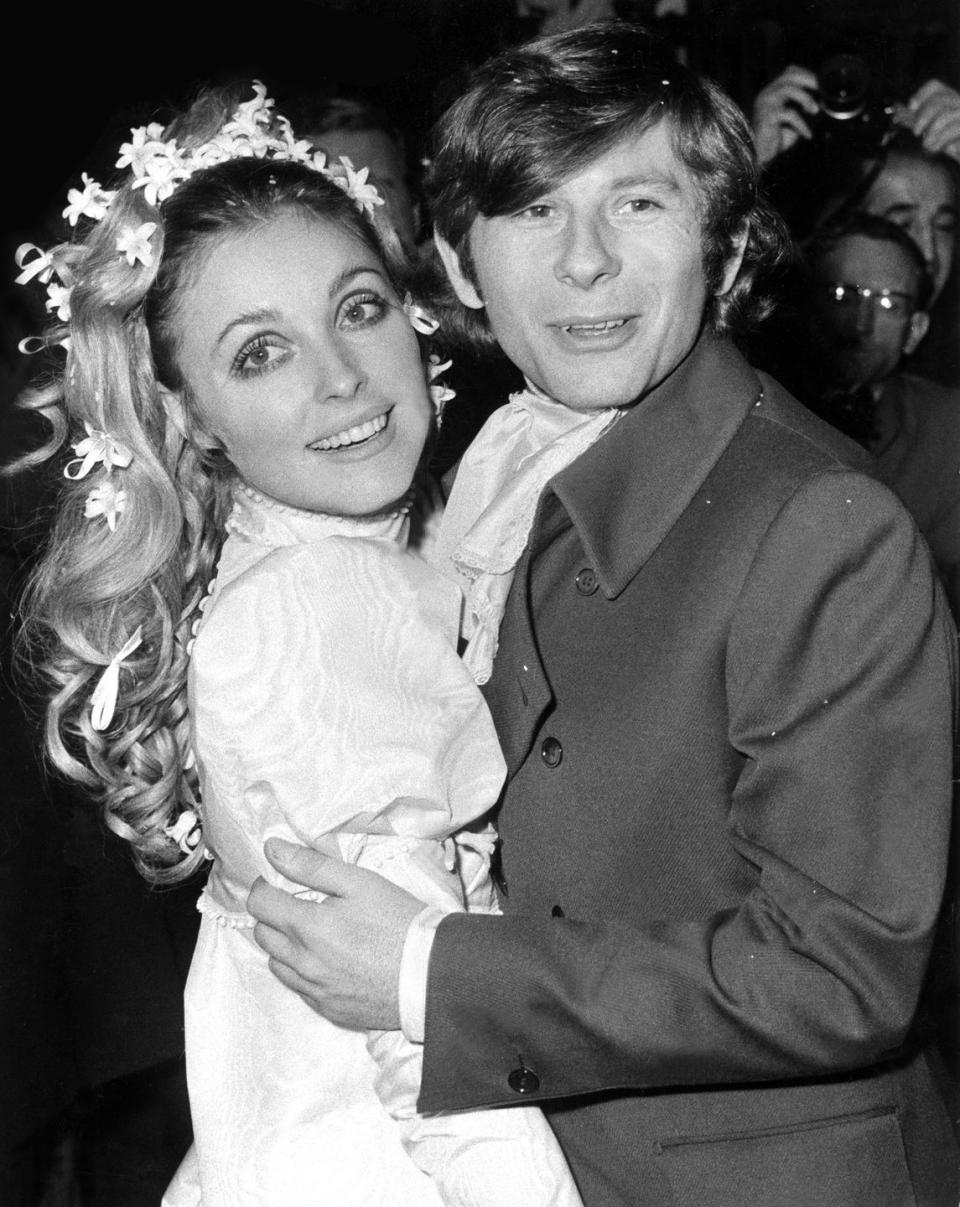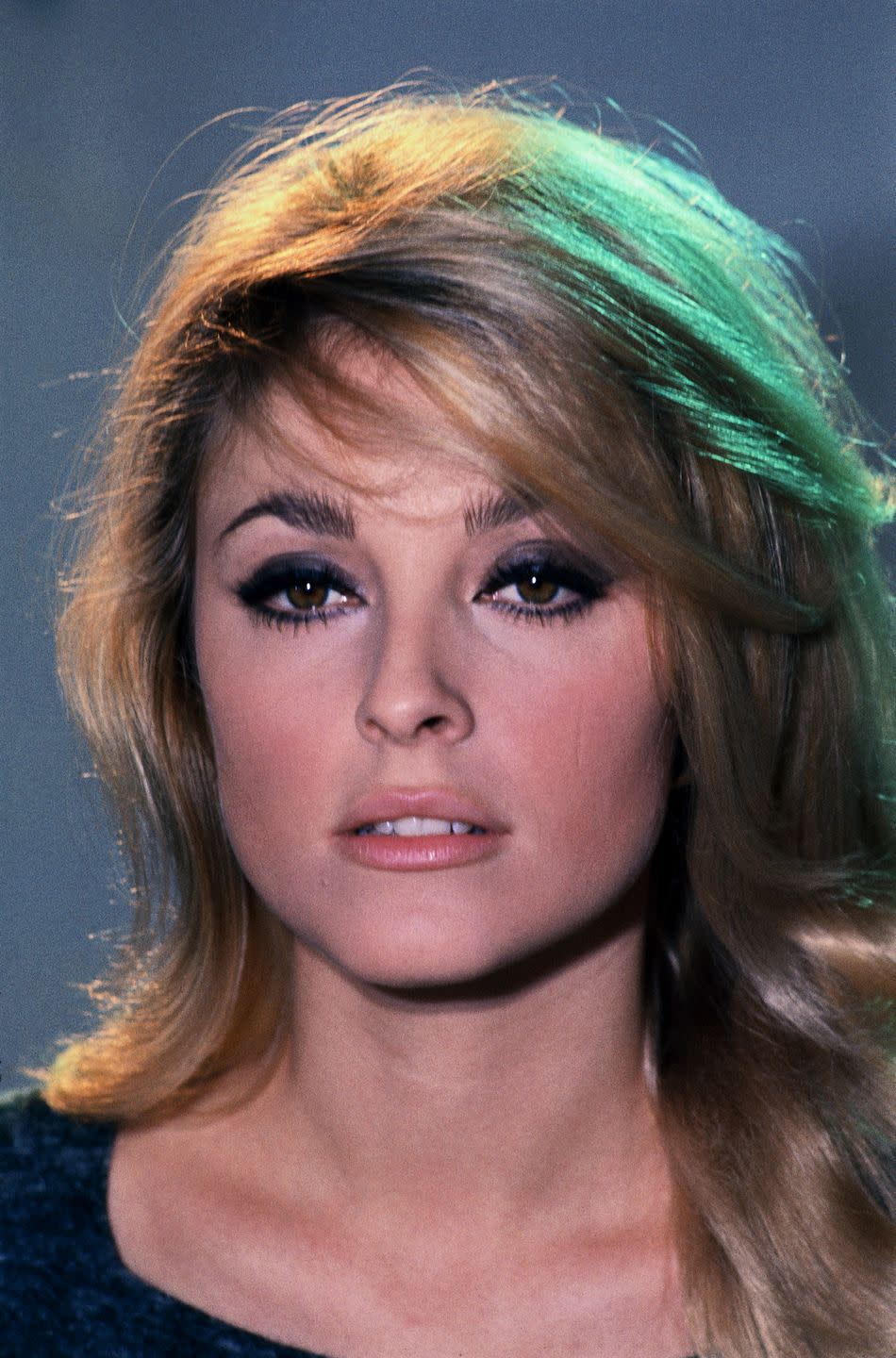The Life and Tragic Death of Sharon Tate

Actress Sharon Tate has remained a Hollywood icon for decades for her work on films like the cult-classic Valley of the Dolls, her connection to controversial filmmaker Roman Polanski, and her tragic death.
Now, with the 50 year anniversary of her infamous murder approaching, Tate has become the focus of three upcoming films, including Quentin Tarantino's Once Upon a Time in Hollywood, starring Margot Robbie as the starlet. Here's what you should know about the real Tate.
She was worldly from a young age.
Born on January 24, 1943, in Dallas, Texas, Tate spent much of her youth moving from place to place for her father, Colonel Paul James Tate's, military career setting up missile stations for NATO nations.
"We were always traveling, often into a different country, and that makes it hard on keeping friends," Sharon's younger sister, Debra Tate told the New York Times in 2018.

In high school, the family settled in Italy, where Tate worked as an extra on film sets and her interest in acting took root.
She was a beauty queen.
Tate was noted for her remarkable beauty almost from the start: the future star was named Miss Tiny Tot of Dallas when she was just six months old. At 16, in 1955, she was named Miss Richland while the attending high school in Richland, Washington. Tate had to give up her crown shortly thereafter when the family received news that her father was being transferred to a posting in Italy, but Tate's doll-like beauty would earn her attention for the rest of her life.

She worked on sitcoms before getting into film.
In 1962, Tate met and signed a contract with Martin Ransohoff, director of Filmways, Inc. With Ransohoff's help, Tate garnered minor roles on network sitcoms like Mister Ed as well as a recurring part on The Beverly Hillbillies. She was also reportedly up for the role of Billie Jo on the comedy Petticoat Junction but was passed over.
In 1965, she appeared alongside David Niven in the film Eye of the Devil. She would go on to star in five more films, including a roll opposite her future husband, director Roman Polanski, in his spoof The Fearless Vampire Hunters. She co-starred with Dean Martin in The Wrecking Crew, and had her breakout role in Valley of the Dolls, for which she was nominated for a New Star of the Year Golden Globe in 1968.
She married Roman Polanski in 1968.
Tate was romantically linked with several notable names in the mid-1960s including French heartthrob Philippe Forquet and celebrity hairstylist Jay Sebring, on whom Warren Beatty supposedly partially based his womanizing character in Shampoo.
Though she and Sebring remained close friends even after their romantic split, it was Polanski, director of Rosemary's Baby and Chinatown, with whom Tate ultimately settled down. Shortly before her 25th birthday, the couple wed in London, in a ceremony at the Chelsea Register Office on January 20, 1968. The high-necked ivory silk minidress that Tate for the occasion sold at auction for $56,000 in 2018.

Over the years, the nature of Polanski and Tate's 18-month marriage has become the source of much debate because of events that took place after the actress's death. In 1977, Polanski was indicted on six criminal counts for the sexual assault of 13-year-old Samantha Gailey and pleaded guilty to unlawful sexual intercourse with a minor and ultimately fled to Europe. He has subsequently been accused of sexual assault by multiple other women and was expelled from the Academy of Motion Picture Arts in 2018.
One of Tate’s friends, Joanna Pettet, said in the 2016 book Sharon Tate: A Life that Polanski, "Told her how to dress; he told her what makeup he liked, what he didn’t like. He preferred her with nothing, no makeup.” Others have said that Polanski forced the star into sexual situations, including unwanted threesomes.
However, not everyone agrees with that assessment. "Sharon absolutely adored Roman. She was head over heels in love with Roman. There are a whole lot of people that have said things, but it’s pure fabrication," Tate's sister Debra said in 2018. "Roman and Sharon were a true love story, that’s what I observed."

In 1969, Tate became pregnant with her and Polanski's first child, a son.
Tate was murdered by members of the Manson Family in 1969.
Late in the night between the 8th and 9th of August, 1969, Tate, who was eight months pregnant at the time, was murdered in her Los Angeles home along with four others: her close friend Jay Sebring, Polanski's friend Woytek Frykowski, Frykowski's girlfriend, coffee heiress Abigail Folger, and Steven Parent, a friend of the estate's caretaker who happened to be visiting him at the time.
The killings were committed at the behest of cult-leader Charles Manson by Charles “Tex” Watson, Susan Atkins, Patricia Krenwinkel, and Linda Kasabian, supposedly in order to incite a race war, though that motive has been heavily debated. The group, along with Leslie Van Houten, would go on to murder Leno and Rosemary LaBianca in their Los Angeles home the following night.

Members of the Manson Family cult were arrested in October of that year on suspicion of auto theft; they were ultimately connected with the Tate and LaBianca murders after Atkins bragged about the killings to cellmates in prison. Manson, Watson, Atkins, Krenwinkel, Kasabian, and Van Houten were indicted for their roles in the murders that December; all except for Kasabian were found guilty and received the death penalty in 1971. (Kasabian was granted immunity from prosecution in exchange for her testimony.) Those sentences were later commuted to life in prison after the death penalty was abolished in California in 1972.
After Tate's death, her mother became a victim's rights advocate.
In 1982, Tate's mother, Doris Tate, helped get the Victim’s Rights Bill passed in California, allowing for statements by victims about the impact of the crimes committed against them or their loved ones to be entered into the proceedings at particular points in the legal process, including parole hearings. She later founded the Coalition on Victim’s Equal Rights.
“The most that I, or any person touched by violence, can hope for is acceptance of the pain," she reportedly said. "You never forget it, not even with the passage of time. But, if, in my work, I can help transform Sharon’s legacy from murder victim to a symbol for victims’ rights, I will have accomplished what I set out to do.”
('You Might Also Like',)

